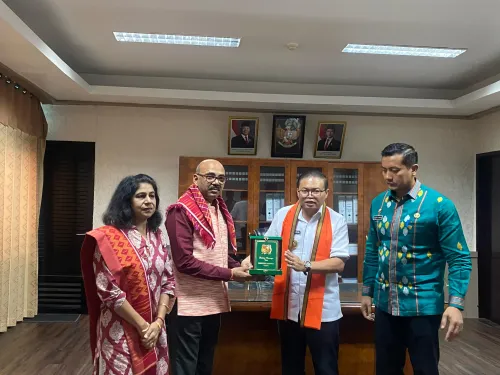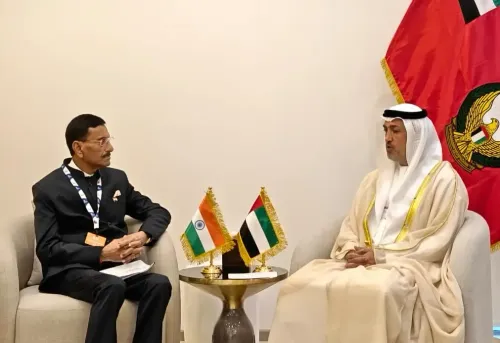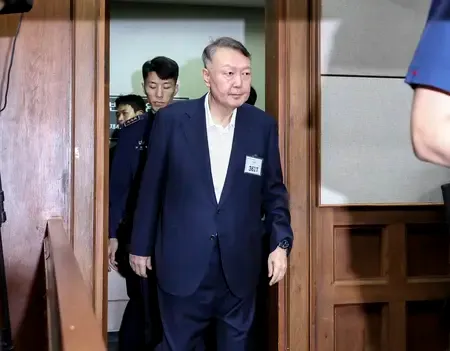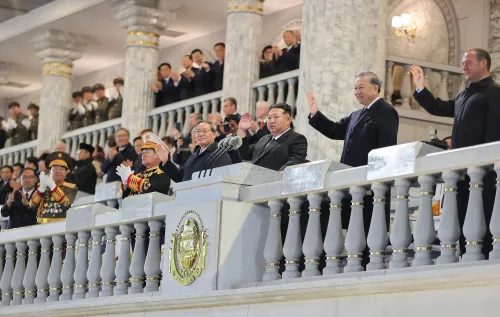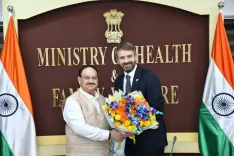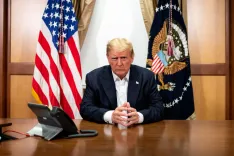What New Understandings Did Xi and Putin Reach?
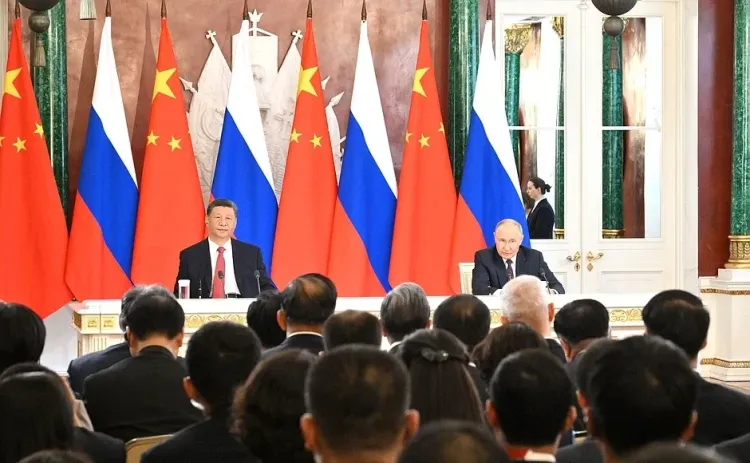
Synopsis
Key Takeaways
- Strengthened China-Russia Relations: The visit solidifies the partnership.
- Historical Significance: 80th anniversary of key victories emphasized.
- Commitment to Multilateralism: Both nations advocate for the UN's central role.
- Nuclear Stability: Dialogue over military tensions stressed.
- International Law: Strong opposition to unilateral sanctions highlighted.
Beijing, May 9 (NationPress) During a significant visit to Russia, Chinese President Xi Jinping and Russian President Vladimir Putin engaged in extensive discussions regarding the dynamics of China-Russia relations as well as critical international and regional matters. A spokesperson from the Chinese Foreign Ministry announced this on Friday.
Lin Jian informed reporters at a daily briefing that both leaders endorsed the Joint Statement that aims to further enhance the China-Russia Comprehensive Strategic Partnership in celebration of the 80th anniversary of significant historical events including the Victory of the Chinese People's War of Resistance Against Japanese Aggression, the Soviet Union's Great Patriotic War, and the establishment of the United Nations. The leaders also observed the signing of over 20 documents pertaining to bilateral cooperation, which will provide fresh momentum to the evolution of China-Russia relations.
Highlighting that both nations are enduring neighbors, true allies in both joyful and challenging times, and reliable partners in achieving mutual success, Xi emphasized that the China-Russia relationship is distinguished by its rich historical context, inherent driving forces, and cultural depth. He affirmed that this partnership does not aim at any third parties nor is it influenced by external constraints, as stated by Lin.
Xi further mentioned that both nations have effectively identified a suitable approach for amicable coexistence and established a framework for strategic collaboration characterized by unwavering friendship, comprehensive strategic coordination, and mutually beneficial initiatives.
According to Xi, the two countries must foster lasting camaraderie, enhance political trust, and amplify strategic coordination while pursuing mutual benefits and advancing practical cooperation across diverse sectors.
Both nations are committed to upholding fairness and justice, defending the international system centered around the UN, and advocating for an international order grounded in global laws. Xi underscored the need for both countries to bolster unity, promote genuine multilateralism, and guide global governance towards positive outcomes.
President Xi noted that this year commemorates the 80th anniversary of the victories in the Chinese People's War of Resistance Against Japanese Aggression, the Soviet Union's Great Patriotic War, and the wider World Anti-Fascist War. In light of unilateral actions, power politics, and bullying on the global stage, China and Russia, as significant nations and permanent members of the UN Security Council, are prepared to take on their responsibilities to uphold an accurate historical narrative of WWII, protect the legitimacy and stature of the UN, and assert the rights and interests of China, Russia, and numerous developing nations, while jointly advocating for a balanced and orderly multipolar world and an inclusive economic globalization.
During this visit, China and Russia released a joint statement focusing on global strategic stability, reaffirming their commitment to genuine multilateralism and the pivotal role of the UN and relevant multilateral frameworks, as noted by Lin.
The spokesperson clarified that both sides emphasized that nuclear-armed nations, which hold a unique responsibility for global security and strategic stability, should dismiss Cold War mentalities and zero-sum games, address concerns through equal dialogue and consultations, and build trust to avert dangerous miscalculations, according to reports from Xinhua news agency. This illustrates China and Russia's sense of responsibility as leading nations in promoting and enhancing global strategic stability.
Both parties also articulated a joint declaration aimed at further strengthening cooperation to uphold the authority of international law, reaffirming their unwavering commitment to the principles of international law, including the UN Charter and the Five Principles of Peaceful Coexistence, and opposing the misuse of unilateral sanctions and extraterritorial jurisdiction, Lin added.
The declaration highlighted that nations possess the right to engage in standard economic and trade cooperation, elaborated on their mutual stance on significant issues related to international law, and conveyed a powerful message of resolutely defending the international order based on law to the global community.

